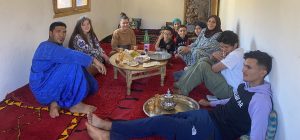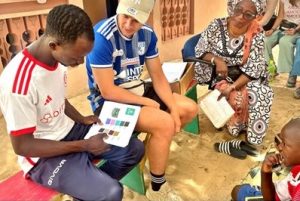Volunteer Pre-Departure Guide: 27 Key Steps for a Positive Impact
This Volunteer Pre-Departure Guide gathers practical tips, resources, and testimonials to turn your desire to help into concrete success while respecting local communities.
Different Forms of International Volunteering

From service civique in France to international humanitarian missions and youth volunteer workcamps, there is a range of formats suited to every profile. Analyze the objectives, duration, and level of support offered to choose the option that aligns with your aspirations.
Defining Your Personal Goals
Volunteer Pre-Departure Guide
Before booking a ticket, list your motivations: skill acquisition, social contribution, search for meaning, cultural immersion… Clarifying your expectations will help you select the right program and stay motivated on site.
Assessing the Ideal Mission Duration
A short mission (1–4 weeks) offers a quick overview but requires rapid adaptation. A stay of 3 to 12 months allows for sustainable results but involves a greater financial and emotional commitment. Weigh your professional, family, and logistical constraints.
Choosing the Right Organization
Volunteer Pre-Departure Guide
Check financial transparency, ethical charter, and volunteer feedback. An association like Globalong is a guarantee of quality.
Understanding the Real Costs
Registration fees, project contributions, flights, vaccines… Create a realistic budget including a contingency margin and crowdfunding options. Don’t forget the carbon cost: offsetting your flight remains a responsible gesture.
Vaccinations and Health
Volunteer Pre-Departure Guide
Visit an international vaccination center at least six weeks before departure. Purchase insurance covering repatriation and liability. Pack a first-aid kit suitable for the climate and activities.
Administrative Formalities
Passport valid for at least six months after return, specific visa, mission contract, internship agreement… Scan and back up all your documents in a secure cloud accessible offline.
Travel Insurance and Liability
Verify coverage for risky sports, civil liability abroad, and medical evacuation. Compare offers dedicated to volunteers.
Intercultural Training
Volunteer Pre-Departure Guide
A workshop on culture shock, local norms, and nonverbal communication reduces misunderstandings. Learn to observe before acting and to value local expertise.
Language and Communication
A basic vocabulary set, offline apps (Pleco, Duolingo), and an illustrated mini-guide facilitate interaction. Empathetic communication is a major asset in building trust.
Security and Risk Management
Volunteer Pre-Departure Guide
Register with Ariane (French Ministry for Europe and Foreign Affairs) to be located in case of crisis. Map hospitals and police stations. Develop an evacuation plan with the NGO.

Accommodation and Living Conditions
Between communal dormitories, host families, and private housing, each option involves different levels of privacy, cost, and immersion. Clarify the rules (curfew, household chores) before signing up.
Essential Equipment
Choose a maximum 50 L backpack and favor the layering technique. Checklist: headlamp, filtered water bottle, mosquito net, universal adapter, digitized documents.
Environmental Impact
Reduce your plastic use (water bottle, tote bag), offset your emissions, favor collective transport, and support the local economy. The zero-waste kit becomes your best ally.
Volunteering Ethics
Volunteer Pre-Departure Guide
Avoid sensationalist voluntourism. Choose projects co-created with communities, focused on sustainability and skills transfer.
Leisure Time Management
Avoid activities harmful to the environment or local culture. Favor ecotourism and community guides to generate a positive impact.
Daily Budget
Follow the 50-30-20 rule: 50 % essentials (accommodation, meals), 30 % leisure, 20 % emergency savings.
Digital Management Abroad
Volunteer Pre-Departure Guide
e-SIM card, secure VPN, screen-time management to fully live the experience. Back up your photos on both a physical hard drive and the cloud.

Respecting Local Customs
Inform yourself about dress codes, greetings, and religious taboos. Humility and verbal caution prevent many frictions.
Food and Health On-Site
Favor cooked foods and treated water. Keep a food journal to identify any intolerances.
Stress and Homesickness Management
Meditation, light exercise, regular calls to family, and peer support form a winning trio to navigate moments of doubt.
Building Lasting Relationships
Active listening, mutual respect, and a willingness to learn foster authentic bonds. Social networks extend the connection after the mission.
Project Monitoring and Reporting
A logbook, geotagged photos, and simple indicators (training hours, trees planted) evaluate the concrete impact of your action.
Preparing for Return
Reverse culture shock is real! Plan a debrief with your NGO, share your learnings, and identify how to continue your engagement at home.
Leveraging the Experience for Your Career
Highlight transferable skills: leadership, adaptability, project management. Add quantifiable achievements to your CV and LinkedIn.
Testimonials and Feedback
“I learned more in three months in Cambodia than in five years of classes,” says Sophie, 35. These stories inspire and guide future volunteers.
Useful Resources
Conclusion
A reliable Volunteer Pre-Departure Guide gives you the clarity needed to turn your enthusiasm into measurable actions. Prepare carefully, respect your hosts, and share your learnings to inspire other solidarity travelers.
Ready to take the plunge? Share this article, subscribe to our newsletter, and start your adventure with confidence!
For more information, feel free to contact us at [email protected]
To learn more about the Globalong Association and its members, visit Instagram, Facebook, LinkedIn and YouTube!

